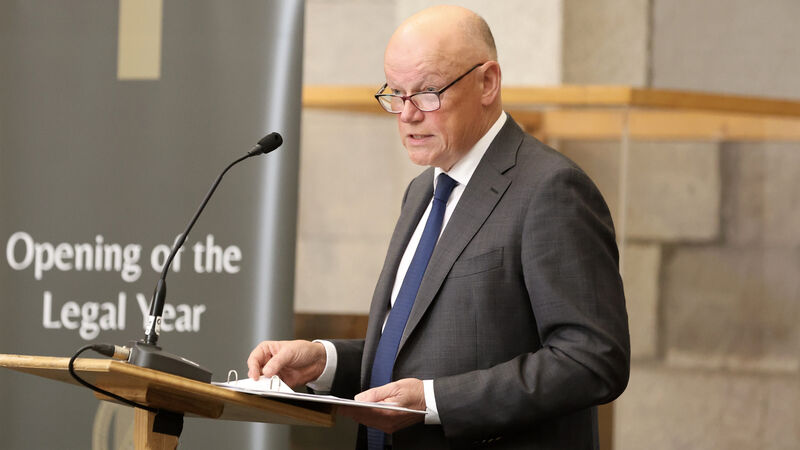Chief Justice warns failure to update personal injuries guidelines puts system at risk

Mr Justice Donal O'Donnell speaking at the opening of the new legal year in the Round Hall of the Four Courts in Dublin today. Photo: Sasko Lazarov/Photocall Ireland
The failure to update the personal injuries guidelines for compensation awards in court cases will put the four-year-old guidelines system at risk, the Chief Justice has warned.
Mr Justice Donal O'Donnell gave the warning as judges and lawyers gathered to mark the opening of the new legal year.











